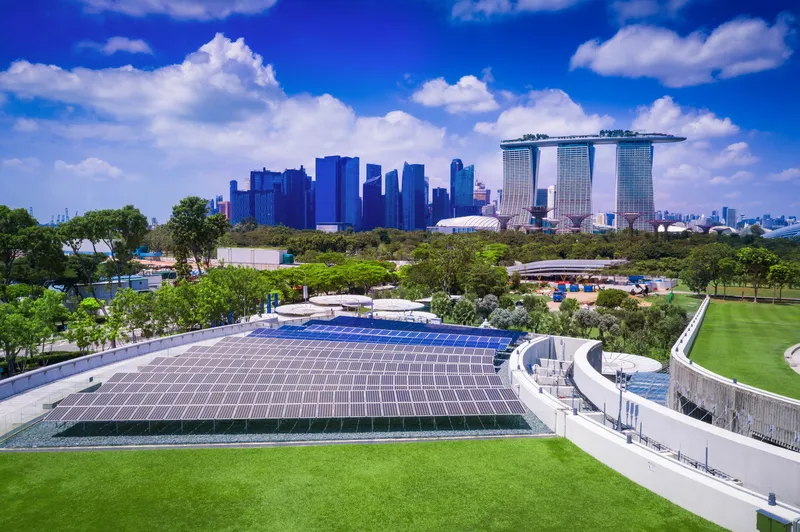CPPAs come to Asia
The days when sovereign guarantees were the be-all and end-all of offtake discussions for project financiers are in the past. The sovereign concept is still important but the suite of other options has grown to such an extent that some corporates offering power purchase agreements could be seen to be more attractive than a sovereign. Certainly, getting a tech giant on board, for example, is fashionable and right now these entities pass the creditworthy test. But this new approach requires a new mindset in Asia,

The sovereign guarantee idea is far from dead and indeed is still essential. Take the first carbon capture schemes that will be project-financed – HyNet and Net Zero Teesside in the UK. These rely on a backstop from the UK government covering uninsurable risks – that is if something goes badly wrong – and volume uptake risk if there are not enough carbon emitters. Projects elsewhere in Europe without these protections are said not to be moving as fast in financing terms.
Aramco is due to project-finance the next carbon capture schemes on the planet in Saudi Arabia and, given the energy company is very much a government-linked entity, its guarantee could either be described as a sovereign or corporate instrument. But in the Gulf the various other renewable energy development programmes are most certainly backed by government guarantees, although the precise nature can vary. In Abu Dhabi's case the government is willing even to take refinancing risk.
Asia was the project finance market dominated by sovereign guarantees but times are a changing as green sponsors and greening corporates get in on the act. Taiwan has been leading the way. Speaking at PFI's Financing Energy Projects in Asia event in Singapore last week White & Case's Fergus Smith said the government "understands mobilising their large corporates, which are so important to Taiwan, in support of energy security in Taiwan is fundamental and frankly pretty obvious for them".
From single semiconductor manufacturer-supported corporate backed deals, he said the next phase in the market "is super interesting, and it's really a range of offshore wind projects seeking to tap a broader pool of corporates across a various range of industries, from obviously semiconductors, very important in Taiwan, to broader industrial players, communications, a whole range of really interesting players looking to get involved".
To get to this point a proper regulatory framework is required aligned with an understanding of the needs of a buyer that might view the requirements of a project financing as "outrageous".
Smith said "it is a process of finding a new path, taking what we know about the projects we've banked in the past, and taking an open approach to finding new pathways for these new projects".
Vietnam this year proposed two direct power purchase agreement (DPPA) mechanisms – one involving separate power lines and the other involving the national grid via EVN. But the issues involved are complex. Nexif Ratch CEO Cyril Dissescou said his company is interested but "it's very difficult to find corporates who can commit to buy your electricity on a take-or-pay basis ... we've started to look to identify who could be the corporates".
"And even if you look at big names, for instance, like Samsung, who has a very significant demand, it's a significant demand over multiple sites. They might not own all the factories that have the need for this demand ... a lot of factories, they are not running over the weekend."
Instead, Nexif Ratch has just completed a solar deal in the Philippines using the corporate PPA route.
"We sell our power to Aboitiz. But Aboitiz is not acting as an end-user," Dissescou said. "They are using it as a RESS, which is a retail energy supplier. So they are buying our electricity and selling it to smaller users."
The company raised 70% of the cost via external debt and did not have to cut down a 20% performance bond to participate in the local green auction.
Aggregation is one way forward. Commercial and industrial-backed deals are starting to emerge in India with credit qualities similar to the state utilities. Cross-border projects could be another new avenue. Singapore is driving this activity.
The island's Energy Market Authority has just granted conditional approval to the ambitious 1.75GW Sun Cable scheme from Australia. It will not be operational until at least 2035 but it could be backed by a suite of corporate offtakers. Whether those offtakers will be able to take the political and commercial risks involved in such deals is another matter. Time for a sovereign-to-sovereign wrap.
The ultimate corporate power purchasers right now across the globe are the data centres. Given the power needs of this bulging new sector, marrying the power demand with finding green power will be extremely difficult. Morgan Stanley has produced research saying the answer will be a mix of gas and nuclear. In Malaysia, a booming DC market, there is currently a high reserve margin of 30% with older plant. High tech is pushing CPPAs even further.






